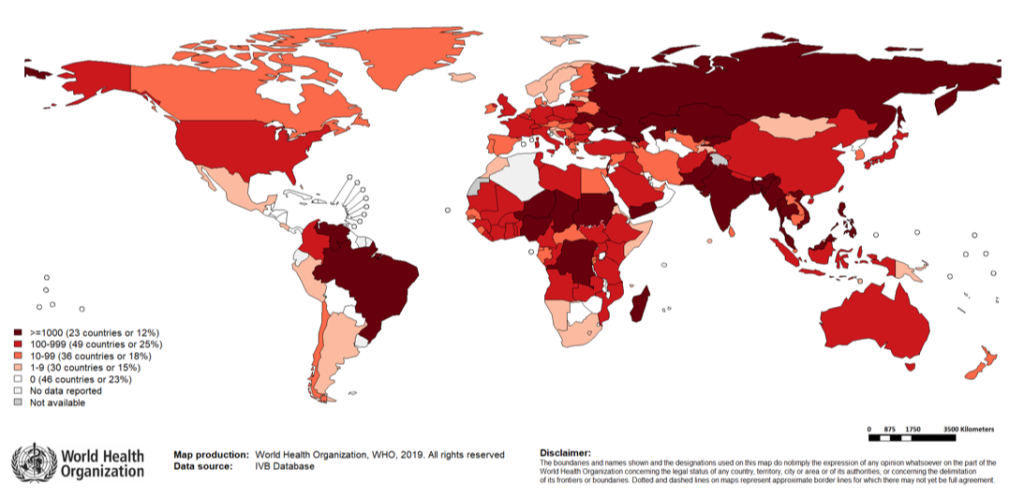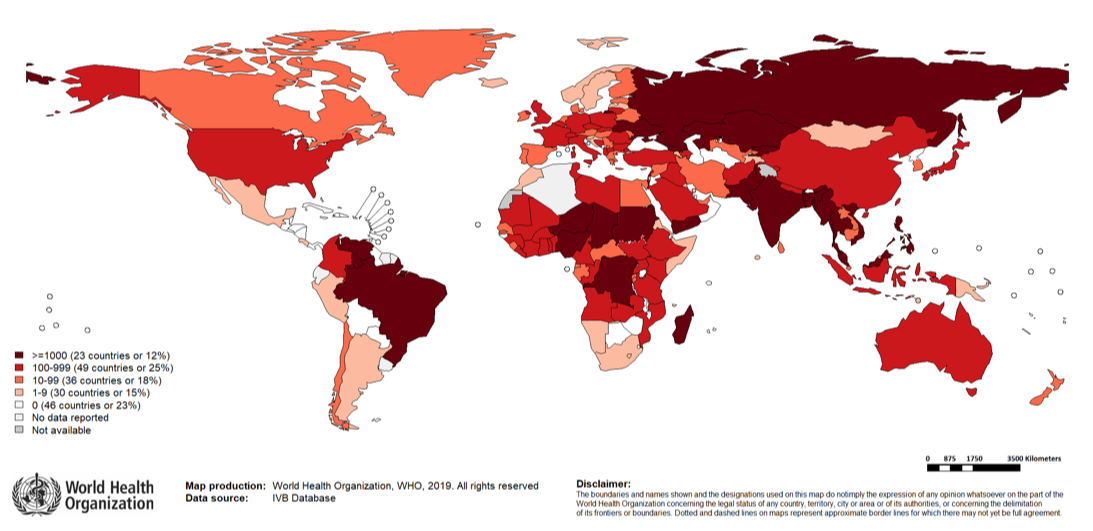
Guest post by Jeff Mosenkis of Innovations for Poverty Action
- Thanks for being patient while the links were sleeping, expect some summer disruptions of schedule as well
- Measles cases are up 300% over last year with outbreaks in the U.S., Europe, The Philippines, Myanmar, and several African countries. I heard a PSA that adults vaccinated before a certain period (when the vaccine process changed) might no longer be immune. So I got checked and sure enough I wasn’t, and had to get a new vaccination. My doctor said about half the people she tests have lost their immunity (though it’s obviously not a random sample). So if you’re planning summer travel, or even not, you might want to talk to your doc about getting checked (it’s a simple blood test).
- An impressive pair of papers on a randomized controlled trial of a national program in Ghana to give disadvantaged kids meals at school (if I’m reading it right, it was a national policy and the order of communities where it was phased in was randomized). The research teams found big impacts on nutrition, growth, education, and cognitive performance, particularly among girls and more disadvantaged kids (via Justin Sandefur).
- Liberians are protesting today against the government. Shipping containers with the equivalent of over $100 million of newly minted currency went missing from a port last year, and it’s not clear what happened to the $25 Million the U.S. put into the economy. The government is restricting access to the internet and social networks. (h/t Grace McLain)
- A nice profile in WIRED of John Arnold, an admired energy trader who became the youngest billionaire in the U.S., then retired at the age of 38, and with his wife Laura, has since been supporting efforts to improve replication and reproducibility in science.
- On the topic, the BITSS blog interviewed Irenaeus Wolff, one of the guest editors of a trial of pre-results review, at Experimental Economics, accepting papers based on study design, before the results are known.
- France has apparently outlawed systematic analysis of judge decisions, punishable by 5 years in prison.
- Which you’ll be even sadder about once you hear the new podcast by Michael Lewis, Against the Rules, which looks at the referees of society, and how they’re increasingly under attack. The episode Baby Judge School (Apple) looks at the myth of robot-like impartial judges, the statistics showing systematic bias, and profiles a judge who left the bench to run a training academy teaching judges about combatting their own biases.
- I’m still working my way through the episodes, but The Neutral (Apple) about Kenneth Feinberg, the go to guy called to (pro bono) run victim compensation funds after national tragedies like 9/11, and has to put values on the lives of the victims, was also great.
- Ever wonder why conference audiences get sleepier later in the day? Astronomer Adam Ginsburg measured CO2 levels at a conference and found that the room full of breathing warm people heated up and went past recommended levels of CO2 pretty quickly, but dropped during a coffee break when organizers opened doors and windows. So if people are falling asleep while you’re on your second set of supplementary slides going through regression coefficients, it’s probably because of the CO2. Read the thread below or the Washington Post write-up. (h/t John Branch)
By request, here is a plot update from @keflavich (folks reasonably requested the axes labels, I unreasonably requested a dragon 🐉🐉). pic.twitter.com/Q8QMZrIF7K
— Dr./Prof. Cara Battersby (@battersbot) June 6, 2019

